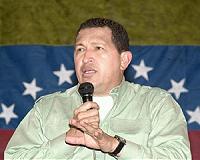 |
Washington (AFP) Nov 9, 2010 A US presidential panel probing the Gulf of Mexico oil disaster Tuesday slammed the firms involved in the deadly rig accident in April, calling them safety laggards in need of a complete overhaul. "BP, Halliburton and Transocean are major companies operating throughout the Gulf, and the evidence is that they are in need of top-to-bottom reform," said William Reilly, co-chair of the presidential oil spill commission. "Emphatically, there was not a culture of safety on that rig... We know a safety culture must be led from the top and permeate a company," he said on the second and last day of a hearing into the April 20 explosion on a BP-leased drilling rig off the Louisiana coast. The seven-member panel was set up by US President Barack Obama six months ago and tasked with finding out what caused the accident, which killed 11 rig workers and sparked a massive oil spill that is still impacting the Gulf environment and economy. Reilly blamed the rig explosion on a "culture of complacency" that ran through the three firms, and said all three had made a "suite of bad decisions" as they worked to drill a well more than a mile beneath the surface of the Gulf. BP and its partners on the well ignored key test results, ran tests badly, and dismissed pressure readings that should have sounded alarm bells, saying they were likely caused by a faulty gauge, he said. Reilly called all three companies "laggards" on safety issues, and expressed the hope that they would learn from other firms in the industry, who testified on safety matters before the commission on Tuesday. His co-chair on the commission, Senator Bob Graham, said the three companies had "a culture that did not promote safety, and that culture failed. "Leaders did not take serious risks seriously enough, did not identify risks that proved to be fatal," he said. An engineering expert who helped conduct a months-long probe ordered by the panel to try to determine what caused the explosion on the rig broke with protocol during the hearing to say he thought the deadly accident could have been prevented. "Leading up to April 20, each of the companies had data and each was responsible for operations, and if data had been shared differently and operations had been carried out differently, I believe this disaster could have been prevented," said Richard Sears. "For a number of reasons, it didn't happen that way, and that's sad," he said after he had outlined the probe team's preliminary recommendations on how to fix the problem. Among those recommendations was improving communication between BP and its partner companies and smoothing out the "muddled lines of authority" within BP and between the oil company and its contractors. "It was confusing to us where responsibility lay and how decisions were made and shared," said Sears. BP shares were up more than two percent earlier Tuesday after the commission's lead investigator Fred Bartlit said his probe team's findings largely concurred with an internal report of the accident by BP in September. That report placed a large share of the blame on Transocean, owner of the drilling rig, and Halliburton, which cemented the well with slurry it knew to be faulty. But by the close of trading in New York on Tuesday, BP shares were down half a percentage point. Most of Tuesday's hearing had focused on what the oil company did and did not do leading up to the accident. Outside experts from major oil, drilling and engineering firms, questioned the soundness of a decision by BP to seal the well with a single cement plug placed 3,000 feet (914 meters) beneath the surface instead of the usual 300 feet (91 meters) down. Others wondered why BP had changed its plan for sealing up the well after drilling was completed three times in the days leading up to the accident, with some saying it indicated a lack of vigilance and focus. The seven-member commission is still gathering evidence for its final report on the root causes of the Gulf oil disaster, which it has to submit to Obama by January 11.
Share This Article With Planet Earth
Related Links Powering The World in the 21st Century at Energy-Daily.com
 Venezuela growth hit by state seizures
Venezuela growth hit by state seizuresCaracas, Venezuela (UPI) Nov 8, 2010 Venezuela, the only Latin American nation still in recession in the last quarter of 2010, risks fresh blows to its growth prospects in 2011 after a spate of new nationalizations hitting key resource industries. Privately run steel manufacturing plant Sidetur was taken under state control after officials accused its operators of keeping productivity low and not doing enough to meet domes ... read more |
|
| The content herein, unless otherwise known to be public domain, are Copyright 1995-2010 - SpaceDaily. AFP and UPI Wire Stories are copyright Agence France-Presse and United Press International. ESA Portal Reports are copyright European Space Agency. All NASA sourced material is public domain. Additional copyrights may apply in whole or part to other bona fide parties. Advertising does not imply endorsement,agreement or approval of any opinions, statements or information provided by SpaceDaily on any Web page published or hosted by SpaceDaily. Privacy Statement |